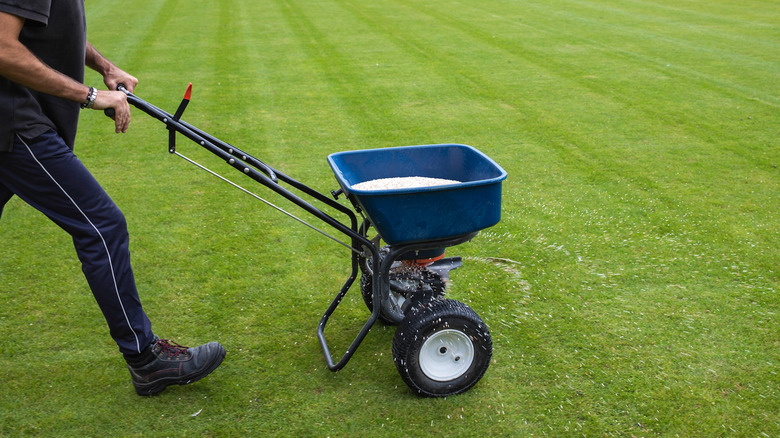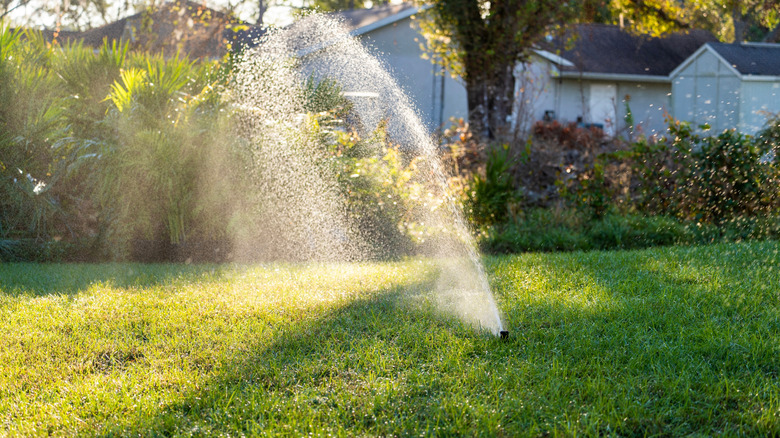Should You Water Your Lawn After Fertilizing? Here's What All Homeowners Need To Know
Watering your lawn after fertilizing it is a valuable practice — it helps ensure the fertilizer reaches your lawn's root zone instead of sitting on top of the soil, and it prevents scorched grass. Most university extension services recommend a relatively light watering right after fertilizing, enough to wash the fertilizer off the grass blades. Guidelines can vary based on the type of fertilizer, so before you fertilize your lawn, read the fertilizer label to make sure the manufacturer supports watering after application.
Since water helps fertilizer perform better, some gardeners schedule fertilizer application around the rain forecast, choosing to fertilize before a light rain. But because it's difficult to predict whether the rain will comply with your plans and how heavy the rain will be, you'll still want to have your own irrigation system ready to step in.
Watering after you fertilize must be approached with caution, for the sake of both your lawn and the environment. Too much water will lead to excessive runoff. Avoid letting a heavy rainstorm wash away your fertilizer by keeping an eye on the forecast and timing your irrigation carefully. You also have the option of waiting 24 hours after heavy rain to fertilize, which allows the fertilizer to easily break down and enter the soil without subsequent watering.
How much to water your lawn after fertilizing
Overwatering is the top watering mistake with your lawn, and that is especially the case right after fertilizing. Your lawn loses its nutrients before it can benefit from them when you overwater. What amount of water will accomplish the task without overdoing it? Recommendations range from less than 1/4 inch to 1/2 inch of water.
Fertilizer that washes away from lawns as runoff or enters the groundwater is also a significant environmental concern. Two of the three main ingredients in NPK fertilizers (nitrogen, phosphorus, and potassium) can cause harm. While potassium brings no known ill effects, nitrogen and water both negatively affect water quality. Excessive phosphorus runoff is associated with "eutrophication," in which surplus algae grow and emit toxins, water becomes cloudy with foul smell and taste, and fish die. To further guard against fertilizer pollution in water bodies, try splitting the suggested amount of water-soluble or quick-release fertilizer in half and applying it 10 days apart. To prevent runoff in compacted and other problematic areas, aerate the lawn first. Proper fertilization also reduces the amount of future runoff.

